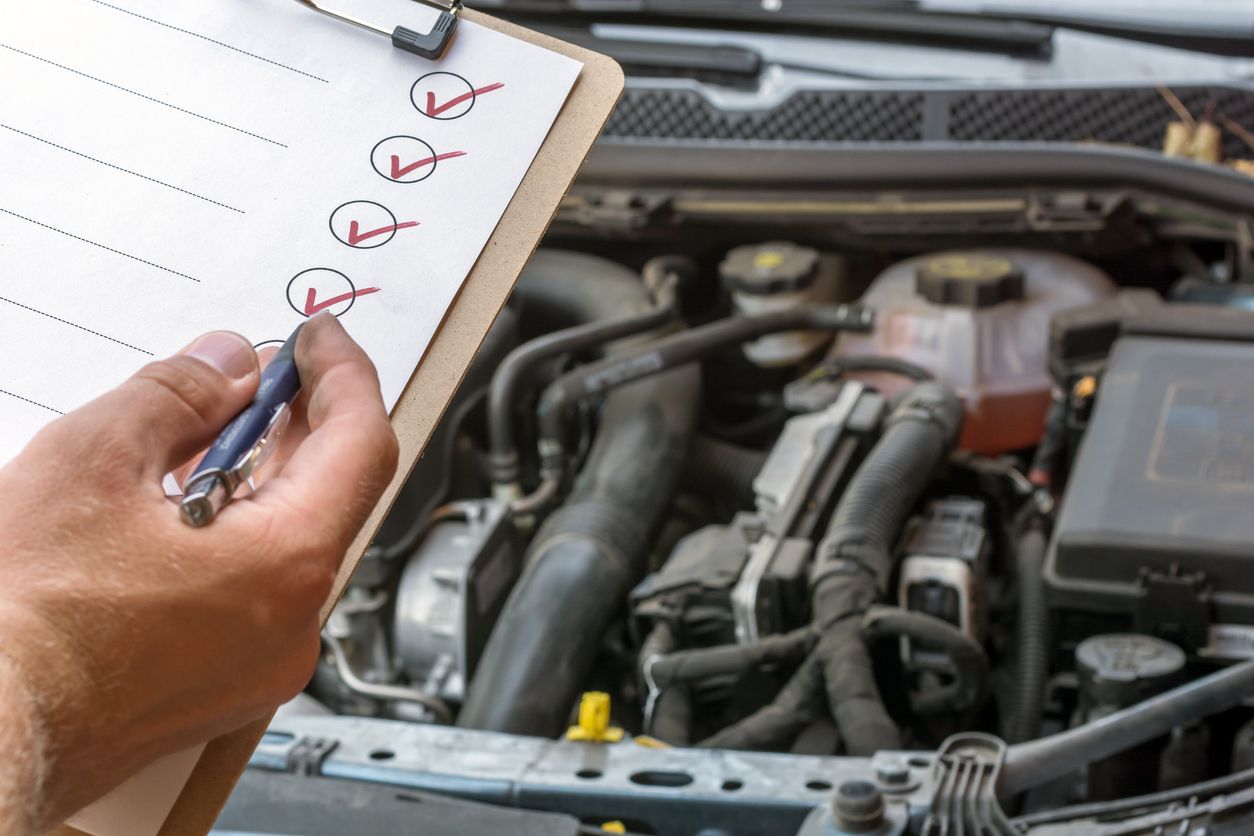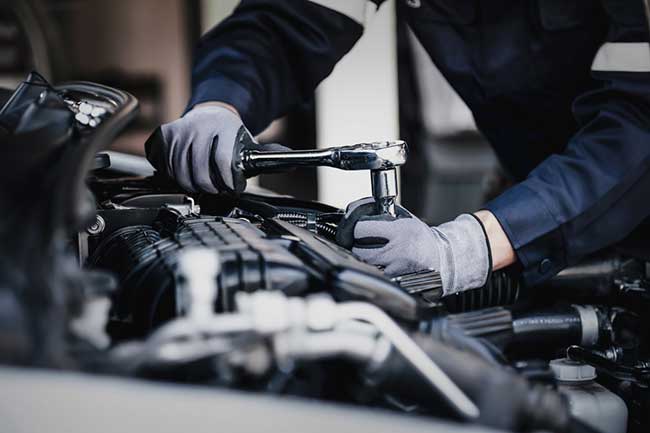All Categories
Featured
A car overheating can be a stressful circumstance, specifically if it occurs unexpectedly. High engine temperature levels can result in extreme damage otherwise dealt with quickly. Recognizing what to do when your automobile overheats and recognizing just how to stop it can conserve you from pricey repairs and ensure your security on the roadway.
![]()
If Your Automobile Gets too hot,What to Do. Pull Over Securely. As soon as you notice signs of overheating-- such as vapor rising from the hood, a surging temperature gauge, or advising lights-- draw over to a secure area. Shut off the engine promptly to avoid more damages.
Transform Off the air conditioner and Activate the Heating system. If you're incapable to pull over right now, transform off the air conditioning to decrease engine tons and activate the heating system. This reroutes warm far from the engine and into the cabin, which can assist decrease the engine temperature briefly.
Open the Hood (with Care) Await the engine to cool down prior to opening the hood. Opening it ahead of time can reveal you to scalding heavy steam or hot fluids. Once it's secure, evaluate the engine for apparent indications of problem, such as leaking coolant or a busted radiator hose.
Examine the Coolant Levels. Add it to the reservoir or radiator once the engine has cooled down if you have coolant or water in your automobile. Stay clear of including cold water to a warm radiator, as it can create cracking.
![]()
Call for Help. Get in touch with a tow vehicle or roadside aid if you're incapable to identify or deal with the issue. Driving with an overheated engine can lead to significant damages, such as a blown head gasket or deformed engine elements.
Just How to stop Your Vehicle from Getting too hot. Inspect Coolant Degrees Consistently. Ensure your automobile constantly has the correct amount of coolant. Low coolant degrees are one of one of the most usual sources of overheating. On a regular basis inspect the coolant storage tank and leading it off if required.
Check Radiator and Hose Pipes. Seek splits, leakages, or loosened links in the radiator and tubes. Change any broken parts without delay to avoid coolant leaks.
Maintain Your Cooling System. Flush and replenish the cooling system as suggested in your vehicle's proprietor handbook. Gradually, old coolant can lose its effectiveness and stop working to shield the engine from overheating.
Monitor the Thermostat and Water Pump. A malfunctioning thermostat or water pump can interrupt the cooling system's feature. Have actually these components checked throughout regular maintenance to catch concerns early.
Prevent Straining Your Automobile. Excessive weight places added strain on the engine and cooling system. Maintain your load within the producer's suggested limits.
Enjoy the Temperature Level Gauge. Focus on your temperature scale, specifically during heat or when increasing high inclines. Take preventative measures such as minimizing rate or transforming off the Air conditioner. if the scale starts to climb.
Conclusion. Taking care of an overheated vehicle doesn't need to be overwhelming if you recognize what actions to take. Acting promptly and safely can stop more damage to your engine. To reduce the threat of overheating, remain on top of routine upkeep, examine your air conditioning system, and drive responsibly. With correct treatment, you can keep your engine running efficiently and avoid the hassle of an overheated lorry.

If Your Automobile Gets too hot,What to Do. Pull Over Securely. As soon as you notice signs of overheating-- such as vapor rising from the hood, a surging temperature gauge, or advising lights-- draw over to a secure area. Shut off the engine promptly to avoid more damages.
Transform Off the air conditioner and Activate the Heating system. If you're incapable to pull over right now, transform off the air conditioning to decrease engine tons and activate the heating system. This reroutes warm far from the engine and into the cabin, which can assist decrease the engine temperature briefly.
Open the Hood (with Care) Await the engine to cool down prior to opening the hood. Opening it ahead of time can reveal you to scalding heavy steam or hot fluids. Once it's secure, evaluate the engine for apparent indications of problem, such as leaking coolant or a busted radiator hose.
Examine the Coolant Levels. Add it to the reservoir or radiator once the engine has cooled down if you have coolant or water in your automobile. Stay clear of including cold water to a warm radiator, as it can create cracking.

Call for Help. Get in touch with a tow vehicle or roadside aid if you're incapable to identify or deal with the issue. Driving with an overheated engine can lead to significant damages, such as a blown head gasket or deformed engine elements.
Just How to stop Your Vehicle from Getting too hot. Inspect Coolant Degrees Consistently. Ensure your automobile constantly has the correct amount of coolant. Low coolant degrees are one of one of the most usual sources of overheating. On a regular basis inspect the coolant storage tank and leading it off if required.
Check Radiator and Hose Pipes. Seek splits, leakages, or loosened links in the radiator and tubes. Change any broken parts without delay to avoid coolant leaks.
Maintain Your Cooling System. Flush and replenish the cooling system as suggested in your vehicle's proprietor handbook. Gradually, old coolant can lose its effectiveness and stop working to shield the engine from overheating.
Monitor the Thermostat and Water Pump. A malfunctioning thermostat or water pump can interrupt the cooling system's feature. Have actually these components checked throughout regular maintenance to catch concerns early.
Prevent Straining Your Automobile. Excessive weight places added strain on the engine and cooling system. Maintain your load within the producer's suggested limits.
Enjoy the Temperature Level Gauge. Focus on your temperature scale, specifically during heat or when increasing high inclines. Take preventative measures such as minimizing rate or transforming off the Air conditioner. if the scale starts to climb.
Conclusion. Taking care of an overheated vehicle doesn't need to be overwhelming if you recognize what actions to take. Acting promptly and safely can stop more damage to your engine. To reduce the threat of overheating, remain on top of routine upkeep, examine your air conditioning system, and drive responsibly. With correct treatment, you can keep your engine running efficiently and avoid the hassle of an overheated lorry.
Latest Posts
Discover Exclusive Auto Repair Offers in Chicago at Montclare Auto Repair
Published May 26, 25
1 min read
Explore the Top Auto Repair Deals in Montclare, Chicago
Published May 25, 25
1 min read
Learn Why Chicago Drivers Trust Montclare Auto Repair for Reliable Service and Huge Savings
Published May 23, 25
1 min read
More
Latest Posts
Discover Exclusive Auto Repair Offers in Chicago at Montclare Auto Repair
Published May 26, 25
1 min read
Explore the Top Auto Repair Deals in Montclare, Chicago
Published May 25, 25
1 min read
Learn Why Chicago Drivers Trust Montclare Auto Repair for Reliable Service and Huge Savings
Published May 23, 25
1 min read